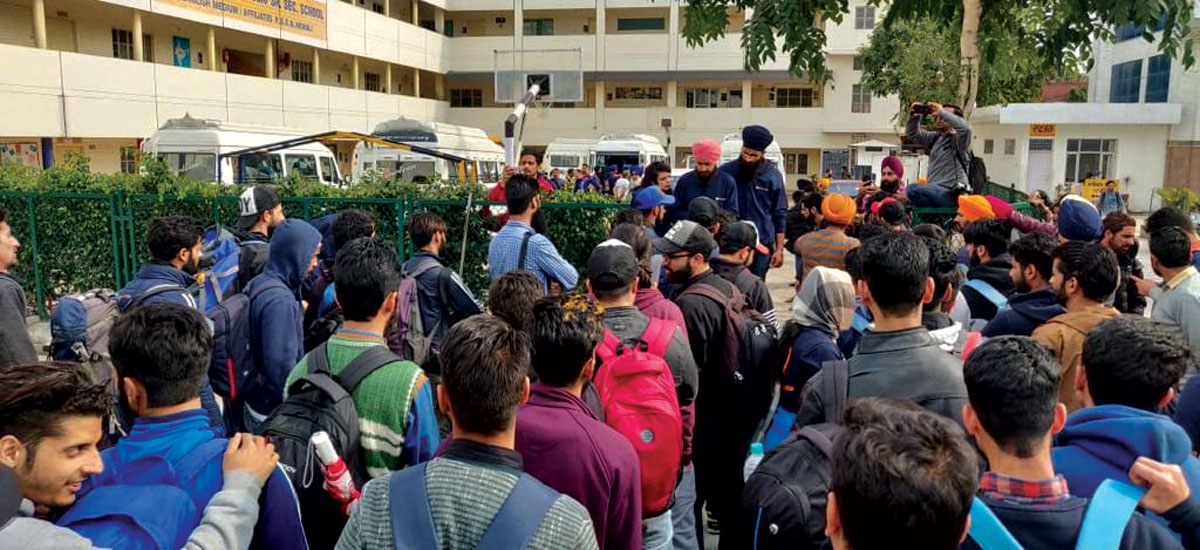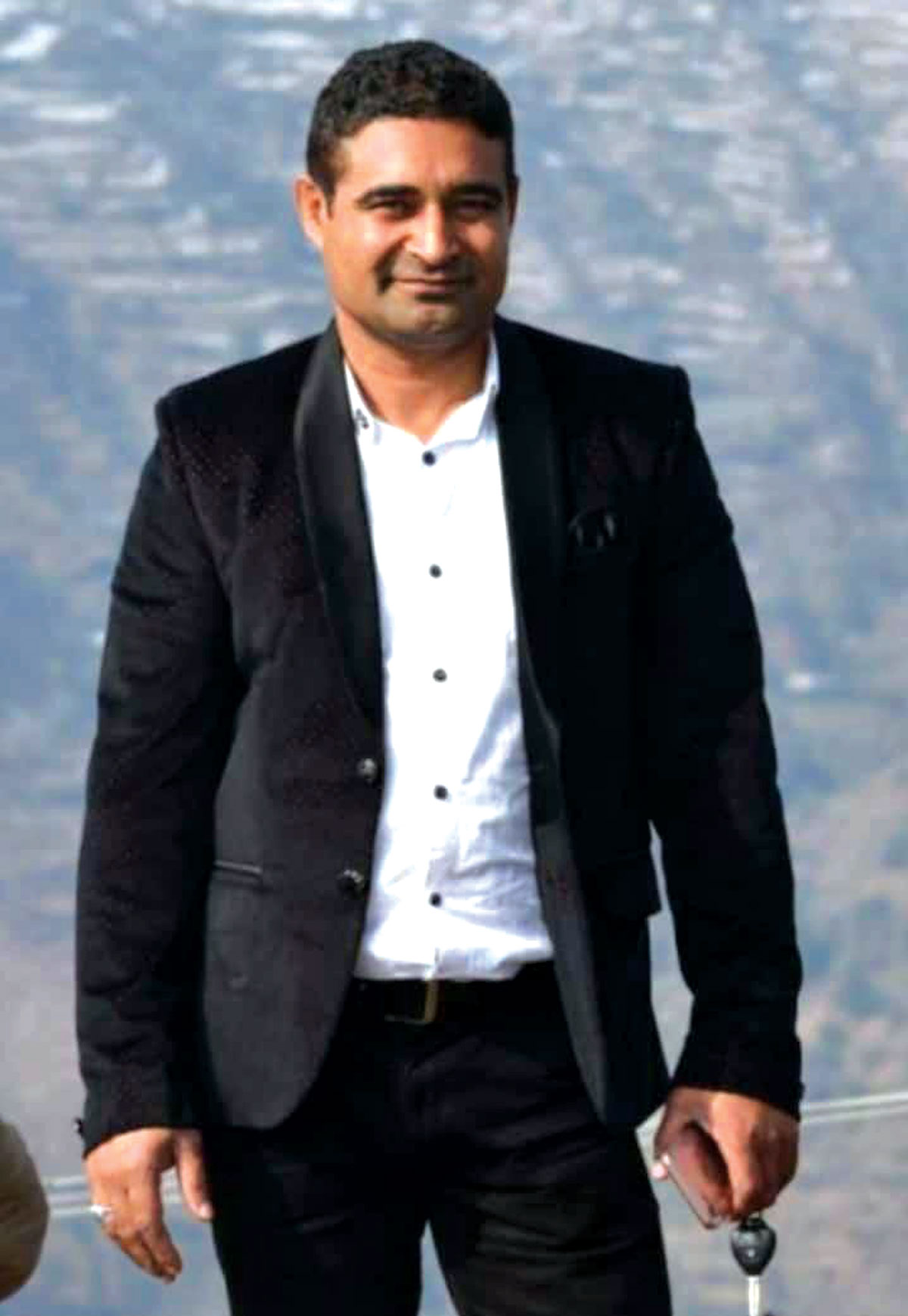Faizan Ahmad, a student, passionate about journalism, writes his first-hand account about what happened and how it escalated and then good men in Dehradun rescued them to safety

“Aap Usmaan ke ghar mein rehthe ho, wahan nahin jana abhi, wahan kuch hindu ladkey bahir khaday hain, woh Kashmiriyun ko doondh rahe hai.”
On February 15, afternoon, when I and my Kashmiri friends came out from a mosque in Bhauwala after Friday prayers, a man, in his late thirties, sporting trimmed moustaches and wearing a skull cap took us aside and cautioned us to avoid going towards Usman’s house. I looked through the gap between two buildings and saw a white vehicle parked outside Usman’s house. The man thought we lived at Usman’s house but we did live in the same vicinity. So we avoided taking that route and instead snuck into the apartment of our classmate near the mosque.
Bhauwala is a modest locality tucked up in the forests, 15 miles to the northwest of Dehradun. A considerable part of the population is Muslim. A Jamia Masjid is located in the centre near the market and Muslims live around it.
I live with my three college mates at an apartment of a Muslim family that provides accommodation to nearly a dozen Kashmiri students. For a number of Muslim families, renting accommodation to Kashmiri students is a routine. In Bhauwala, Kashmiris study in three colleges – Baba Farid Institute, Dolphin Institute, and Dev Bhoomi Institute, equidistant from Sudhowala and Bhauwala, almost 10 Km apart. Unlike Bhauwala, Sudhowala is an emerging locality on Dehradun Chandigarh road in Dehradun outskirts and is dominated by migrants from rural Gharwal migrants.
We spent a couple of hours and all the worried students assembled in one room. A friend who lives in Sudhowala had come for prayers and was stuck with us. He called his roommate and the reply was ominous: “We have locked ourselves inside a room as a group of boys have surrounded our hostel. We heard some Kashmiri students were beaten and we don’t know what to do.” This panicked everybody.
A few hours later, I and my roommate decided to go back as we were worried about the well being of other roommates. On way to our accommodation, we avoided any eye contact with passersby to avoid trouble. We were told that a group of youth had come but the inmates stayed indoors silent. Even before the Nimaz, one of my roommates had received a phone call from Sudhowala that some cab borne men had whisked away a Kashmiri student to an unknown place. This had marked the start of tension.
Tension bad begun soon after a Kashmiri student had shared a controversial Facebook post regarding the Pulwama incident. This marked the beginning of the tensions and the commentary on this post indicated a crisis. Some students even skipped college that day.
However, two Kashmiris living in my apartment had attended their classes. They returned horror-stricken. They told me they had a providential escape as “some local boys had assembled outside the college and were pursuing Kashmiri students.”
Our landlord Saleem Bhai, who owns two tractors and some farmland, assured us of protection. “No one will dare to come here and harm you,” he told us. “You just stay indoors and don’t indulge in discussion with any stranger.”
We had already stored some vegetables and rice. We spent the next few hours in uneasy calm. Reports from different areas were not soothing either. We heard that in Sudhowala a mob had gathered outside Baba Farid Institute and thrashed many Kashmiri students. Two days later, a student told me how he escaped the mob, unlike his college mate. “I jumped over the college fence but my friend could not,” he said. “He was kicked and beaten with sticks.” When I met that assaulted boy, he was limping. I avoided asking him his story.
In the evening, a procession of surcharged protestors passed the street outside our building. We shut the lights off and stayed calm. In 15 minutes, it was over. We spent the night receiving reports of assaults, harassments and panic filled stories.
In Sudhowala a couple of our Kashmiri students were forced to leave their rented accommodation by landlords. It rained a lot that night. We got worried about their safety as they had to travel at the wrong hour to the bus station, 15 kilometres away. Many cab drivers denied them a drive but the police helped them to reach the bus station and eventually to Chanḍigaṛh.
Two other friends from the same locality spent half of the night in police’s protective custody before being evacuated to Kishan Nagar. A group of local youth had barged into their flat and assaulted them. “I was slapped and forced to vacate the flat. They were wearing college uniforms,” he told me over the phone many days later from his Baramulla home.
At the peak of this mess, a friend added me to a Whatsapp group that Kashmiri students in Dehradun created to stay in touch. It proved very helpful in keeping everyone updated and connected.
Next morning when we woke up, the first issue was to buy milk and bread from the market. No one of us had ventured out since Friday afternoon. After checking on the phone if it was safe, we purchased the essentials. One of my mates went and bought milk and bread. The shopkeeper had asked him mockingly: “where all the Kashmiris are hiding?”
A little later, two Uttrakhand policemen arrived in our courtyard and it was reassuring. They cautioned us against venturing out. They asked if we wanted to go home, to which there was a collective yes with a rider for security en route. They drafted our list but the travel plans were hazy.
Every weekend, a fair is organized in Bhauwala market where we usually buy groceries at cheaper rates. No Kashmiri attended the fair that day.
At around 4:30 PM, I got a call from a girls’ hostel in Sudhowala. I heard my classmate crying for help: “Some people have assembled outside our hostel. They are shouting that Kashmiris be thrown out, please help us.” There were shrieks of panic in the background. I attempted to calm her on phone. As I was attempting to connect police, the phone beeped. The Whatsapp revealed the cops had driven to the spot and controlled the situation.
These reports were enough to trigger panic back home. Our families asked us to come home.
As the sun was about to set on the weekend, our landlord asked us that police has made an arrangement for our accommodation in Rampur, a locality dominated by Muslims, 10 kilometres from Bhauwala. Around Maghrib, over 30 students assembled in the courtyard to be ferried to Rampur. Half an hour later, four vehicles picked us up. As we boarded the vehicles and passed through the crowded market I saw people gazing at us with peering eyes.
The driver who drove us to Rampur was continuously asking if there were any more Kashmiris anywhere in Dehradun in need of evacuation. I told him about the girls’ hostel and made a call to one of my classmates. However, the girls refused evacuation saying they were provided security by police and were feeling safe. Later, they shot a video confirming their security. The video was shared on social media by Uttrakhand police before being taken down on request of girls for privacy reasons.
The rescuer dropped us outside a two storey building which looked like a college hostel with a mosque nearby. As we got in, we were provided quilts and mattresses to warm ourselves. Many students had already arrived from Usman’s house during the day. A little later over a dozen more students arrived from Sudhowala.
Moments later, a clean-shaven man, shorter in height, flanked by three men, with a smartphone in hand and in a black coat like a lawyer, greeted us with a salam. He did not introduce himself but assured us to leave worries behind. “No one will touch you here, you can stay as long as you wish to,” he said. His men told me his name is Raashid, a politician and currently heading the Zila Panchayat.
His men listed us and took our group pictures. Later, we called our families and friends back home to reassure them that we are safe.
Dislocated, everyone wanted to be home as soon as possible. But how? Many shared contact numbers of officials mandated by the state government for our security. But most of those numbers were “does not exist” or were “switched off”.
By then, Raashid Sahab’s men set up a big stove on the veranda and prepared dinner for us. It was beans and rice in oil. We dined at around 10 pm.

Post dinner, a dozen of us were taken out from the overcrowded space to a nearby Masjid. We slept inside the mosque. Raashid Sahab also slept with us. He lives around but he stayed with us to make us feel protected. Two cops stayed guard outside the mosque throughout the night.
Since we all were desperate to move home, we contacted every politician we had a contact number of. Even the governor was rung up. Some phones were switched off, some picked the phone and roared and some were responsive and sympathetic. But that is a different story.
My brother sent me PDP parliamentarian Fayaz Mir’s number. He assured help but wanted us to reach Dehradun. Two days later, two PDP men visit Dehradun but most of us had driven to safety. They travelled back with a busload of girls to Jammu.
I met two students who had been physically assaulted and were injured. Horrified, they avoided seeking any medical help. “I will now visit a doctor once I am in Kashmir,” one of them told me. He was attacked by a mob at his Sudhowala hostel room. Frantic bangs on his doors amid threats that “we will burn you” led him to open the door.
“Without any enquiry, they pulled me down, and two of them climbed on my body and beat me with an anti-crash helmet,” he said. “I don’t know how I am alive. They let me go after they saw a lady passing by, though she didn’t intervene.”
My moment of agony descended upon me when I saw my non-Kashmiri classmates update their Whatsapp status with that viral image reading: “Dogs are allowed, Kashmiris are not allowed.” The image was from a mobile phone shop located in Prem Nagar, the central area near Bhauwala and Sudhowala.
In the afternoon, a couple of Kashmiri students came with the good news that they have made transport available to Chanḍigaṛh and Jammu. It was a huge opportunity. But my brother had booked me a ticket to Jammu for Rs 7000. There were seven others also having the tickets. Two students booked the ticket to Srinagar for a whopping Rs 24000 each. But we did not know how to reach Dehradun airport, 40 km away. It was Raashid Sahab who graciously agreed to drop us there.
As I was happy that I will fly home, we started getting disturbing voice message on Whatsapp: “We are stuck inside our room in Mata Ki Chowki, there are protests outside, please help us evacuate.”
I informed one of Raashid sahab’s men and they took Shah Majaz with them and rescued five students.
By 4:30 am, we had an hour-long drive through the deserted city to reach the airport. I had pre-booked connected flight from Jammu. But I never knew I will have to leave Dehradun like this.
(The author wishes to remain anonymous for obvious reasons. Some names have also been changed on request.)















